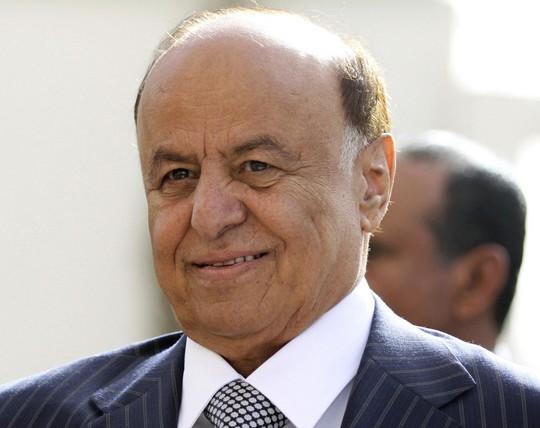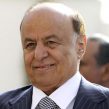
Array of security challenges face Yemen’s new leader – Abd Rabbu Mansur al-Hadi
Publication: Terrorism Monitor Volume: 10 Issue: 5
By:

In the opening days of his presidency, Yemen’s new leader Abd Rabbu Mansur al-Hadi has as his priorities the restructuring of the military and the expulsion of al-Qaeda in the Arabian Peninsula (AQAP) and allied militant Islamist group Ansar al-Shari’a from the restive southern province of Abyan. However, Hadi’s largest shortcoming, his lack of tribal connections, will prove to be a nearly insurmountable obstacle as he attempts to secure the country after more than a year of tribal and political upheaval.
Hadi is a relative unknown in Yemen and has worked in the background behind former president Ali Abdullah Saleh for the entirety of his political career. The new president was born in a small village in the former state of South Yemen and rose steadily in the ranks of the military. After the 1994 Yemeni civil war, Hadi was appointed vice-president by Saleh in an attempt to reconcile with the south after its defeat in the war and subsequent unification with North Yemen. His close association with the Saleh regime caused him to lose a great deal of credibility with southern Yemenis while simultaneously maintaining little sway with northern Yemen’s powerful tribes.
Countering the influence of AQAP in rural Yemen hinges almost completely on the ability of the Sana’a government to coordinate and win the support of tribes in the areas most likely to see an AQAP presence. Without government troops, tribal shaykhs must become de facto representatives of Sana’a in their villages and areas of influence. Unless the government can count on the aid of powerful shaykhs in the governorates of Shabwa and Marib, AQAP may find itself operating with little to no resistance from government troops. Yemen’s tribal structure was masterfully woven into the Sana’a government by Saleh and Hadi will struggle to maintain the complex web of tribal engagement.
Restructuring the Military
One of President Hadi’s first attempts to restructure Yemen’s military was met with immediate resistance. Focusing on the military’s ongoing fight against AQAP and Ansar al-Shari’a in Abyan, Hadi quickly sought to replace Mahdi Maqula, military commander of government forces in southern Yemen. The commander refused Hadi’s orders, insisting that he must receive orders from the commander of Yemen’s northwestern forces, Major General Ali Muhsin al-Ahmar, before leaving his post. In the eyes of Maqula, his 13-year long stint as southern Yemen’s military commander had been overlooked by Hadi and required that the order to step down instead come from a military commander with more clout in the armed forces (Yemen Press, March 2). Indicative of his lack of influence in Yemeni military and tribal politics, resistance to Hadi’s orders has begun at the top of the military apparatus. Maqula was eventually persuaded to leave his post on March 3 and was replaced by General Salem Ali Gatan.
In the midst of the conflict among Yemen’s top military commanders, militants went on the offensive on March 5, inflicting the largest number of casualties on Yemen’s military since the conflict began with the seizure of Ja’ar and Zinjibar in the Abyan governorate a year ago (see Terrorism Monitor, August 11, 2011).
In a surprise attack following a sandstorm, AQAP and Ansar al-Shari’a militants raided several military bases outside of Zinjibar, inflicting a crushing defeat on Yemeni forces. Local journalists put the number of deaths in the raids at 139, including 107 soldiers and 32 militants. Many of the fatalities among the soldiers were reported to have been due to a lack of proper medical care for the wounded. Militants also captured 55 soldiers and, according to local journalists, paraded the captives down the streets of Ja’ar (AP, March 5). In the battle between militant Islamists and the Yemeni military, it would appear that the militants have the upper hand at this point.
Previous attempts by the United States and the United Kingdom to help the Yemeni government counter AQAP’s influence in the country have been shown to be completely inadequate. Members of Yemen’s counterterrorism unit in the Central Security Forces were among those that withdrew from Abyan last March as militants began making territorial gains in Abyan for the first time.
The Struggle for Zinjibar
By late May, 300 armed men seized control of the Abyan governorate city of Zinjibar, sending residents and security forces fleeing. Several independent analysts hinted that withdrawing security forces was a way for Saleh to create diversions to challenges to his authority elsewhere in the country. Other defecting military commanders, including General Ali Muhsin, suggested that the military had not mounted a defense of Zinjibar and that Saleh purposefully ceded territory to militants to re-establish himself as an asset in Western counterterrorism efforts (see Terrorism Monitor Brief, June 17, 2011).
Among the seemingly insurmountable tasks facing a new Yemeni government will be dislodging the militants from Abyan and maintaining security in the governorate. Yemen’s military faces several challenges, including an inability to supply and equip units after their deployment and the government’s failure to pay its troops on a regular basis. In many cases, soldiers under fire simply desert their positions, feeling no compulsion to remain in the military when they are paid sporadically, if at all.
Key to Hadi’s attempt to defeat the Abyan insurgency is reassigning the command of the Central Security Forces, headed by Ali Abdullah Saleh’s eldest nephew, General Yahya Saleh. Yahya has proven time and time again to be an ineffectual commander who treats his post as merely titular. Known in Sana’a for his playboy ways and dissolute behavior, Yahya has expressed little desire to take part in the day-to-day management of the Central Security Forces, preferring instead to spend time in Cuba and Europe on vacation (Marib Press, February 3).
There appears to be unprecedented discontent within the military at the moment. Some 500 officers and men from the First Brigade of Marine Infantry (based in Socotra) protested outside the Vice-President’s residence on March 1, demanding the dismissal of their commander, Brigadier Hussein Khairan, for alleged corruption. Rallies by Air Force personnel demanding the dismissal of Air Force commander General Muhammad Saleh al-Ahmar (a half-brother of the ex-president) were reported in Sana’a, al-Anad and Taiz (AFP, March 1). Units of the First Armored Division under General Ali Muhsin were reported on March 1 to have traded fire outside Hadi’s residence with elements of the Central Security Forces led by the ex-president’s nephew, Yahya Saleh (Reuters, March 1).
Hadi also faces the delicate challenge of maintaining good terms with the United States as anti-U.S. sentiment grows throughout the country. Beyond the general outrage directed towards American drone and missile strikes, Yemenis in urban areas like Sana’a and Taiz have called for the ouster of U.S. Ambassador Gerald Feierstein. Citing what they perceived as a failure to denounce violent crackdowns on peaceful protesters, Yemenis feel that they have been betrayed by the self-styled “Shaykh Feierstein” and are demanding another representative in Yemen. While the Hadi government has been rejected outright by AQAP and Ansar al-Shari’a, close cooperation between the U.S. ambassador and the Hadi regime is likely to foment further distrust of the new president among average Yemenis.
Conclusion
As the political crisis winds down in urban Yemen, tribes are becoming the most powerful players in country. It is something that all players in the crisis will have to consider, including the United States. In a best case scenario, a federal system would provide those tribes local autonomy and adequate representation in Sana’a while remaining under the rule of law. However, restructuring the country as a federal system is something that can only take place far into the future if and when order is restored to the restive parts of southern Yemen.
In a worst case scenario, Yemen will not recover from the crisis and factions will continue fighting across the country. Either way, Yemen’s tribes will play a pivotal role in the future of the country and it is in the best interest of the United States and the Hadi government to bring these tribes to the negotiating table. Whether dealing with AQAP or seeking a solution to the current political crisis, the tribes must be engaged. Politics and diplomacy in Yemen has always emphasized tradition, with all the usual pomp surrounding important meetings and negotiations. Ideally, Hadi will venture out into rural Yemen to forge new alliances between the Sana’a government and tribal Yemen.
Jeb Boone is a freelance writer and journalist and former managing editor of the Yemen Times.





